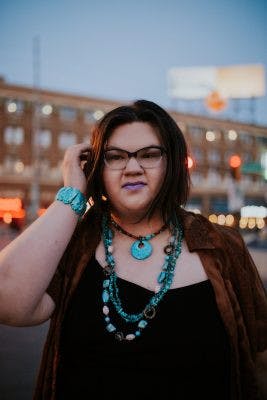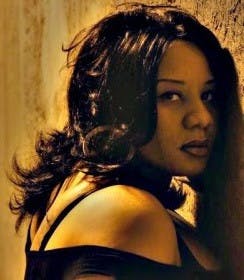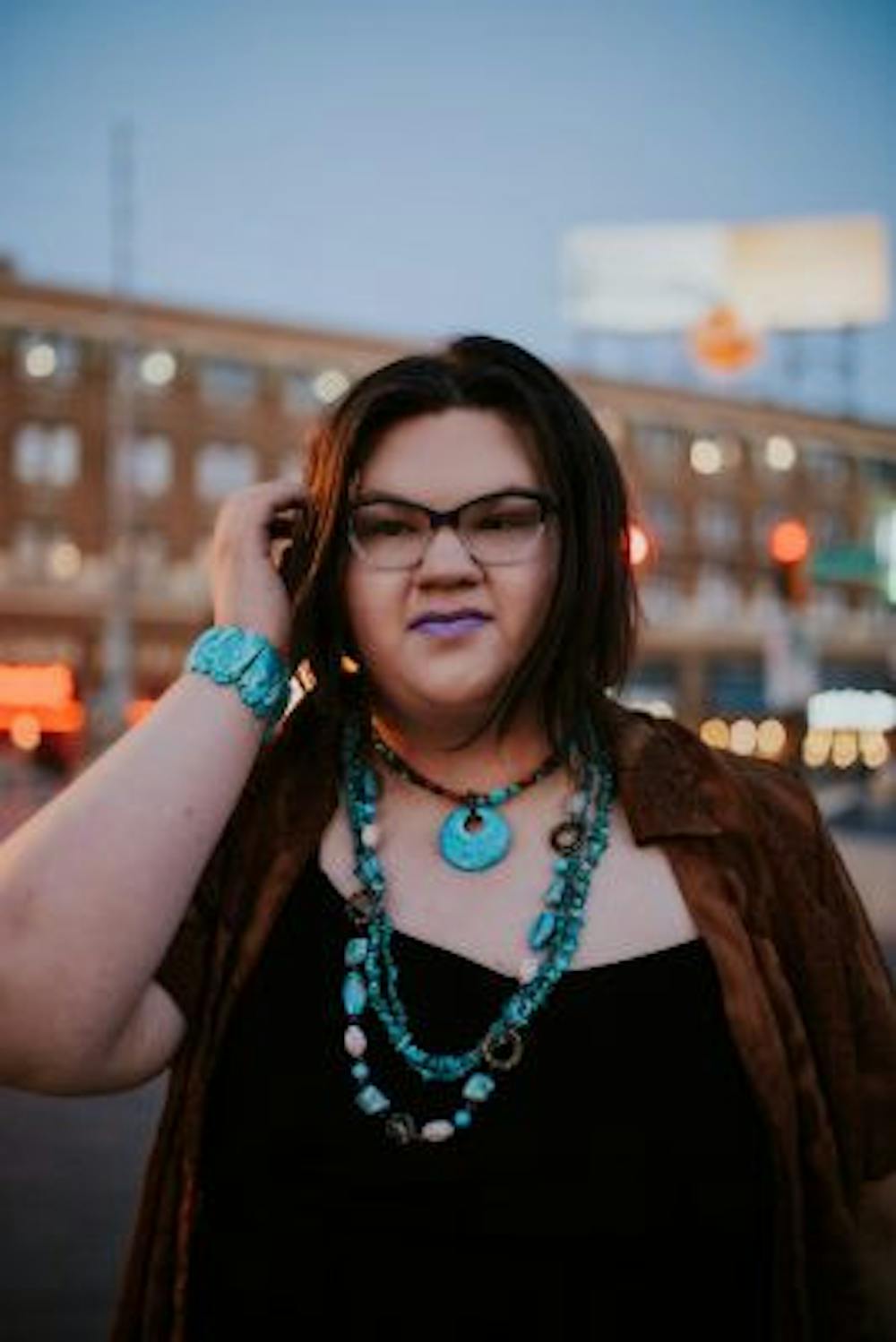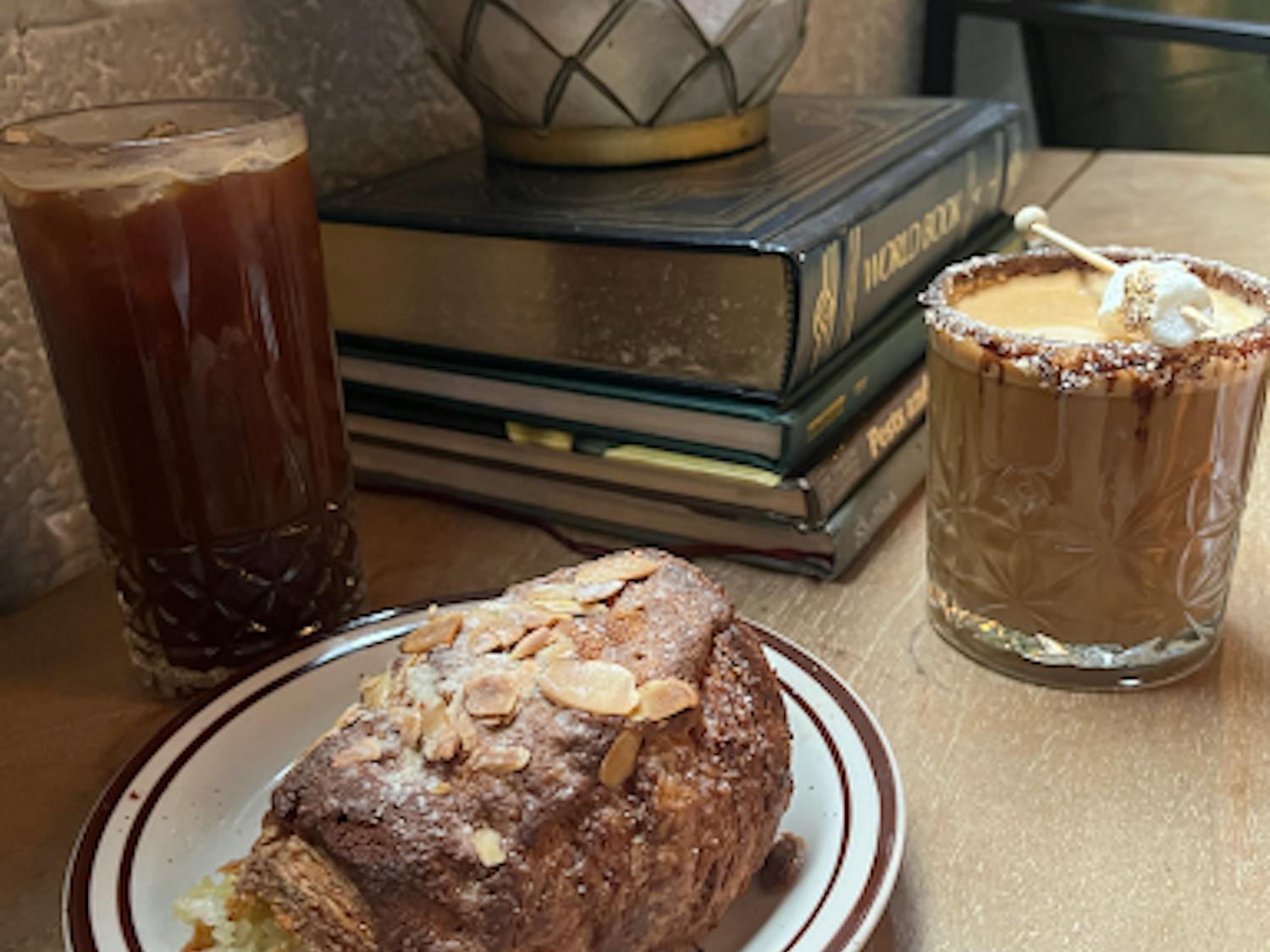Poetry on the Fringe brought a personal and thought-provoking look at body image through poetic, comedic and auteur performances on Sunday.
The event, scheduled from 7 p.m. to 9 p.m., featured an open mic for emerging artists, an original theatrical production and a poetry slam. It took place at the IndyFringe Basile Theater, a homelike performance arts venue at 719 E. Saint Clair St. in Indianapolis.

Self-described poet and transgender activist Sylvia Thomas hosted the open mic segment. She is a senior at IUPUI and an ambassador for the campus’s LGBTQ+ Center who received the 2017 Indy Pride Scholarship for her dedication and work with the community, according to a page from the IUPUI Division of Diversity, Equity, and Inclusion.
Sylvia Thomas opened the event by sharing what body image meant to her.
“We’re going to be talking about body image, which is very important to me as a fat, fabulous woman,” she said.
Sylvia Thomas brought levity to her segment through asides peppered between performances. For example, when poets would almost invariably say there were from Indianapolis, she would jokingly chide them for their unoriginality.
A poet named Sam began the open mic session with a poem about how love interacts with body image in a relationship.
“Her hands have a way of making me feel at ease, even on bad days, when all I see is a number on measuring tape, or the body of a stranger in the mirror,” Sam said.
After Sam, poet Lisa Devon from Richmond, Virginia began her segment by saying, “No matter how skinny or beautiful or perfect a woman seems, I know she feels insecure on the inside sometimes.”
Devon continued, “And no matter how un-beautiful or un-wonderful a woman seems, sometimes she feels the most beautiful.”
Devon castigated society for requiring women to be considered pretty in order to be valued.
“We’re always striving for this thing called beauty when we should be striving for freedom,” Devon said.
This socially conscious yet personal theme was carried on by Gabrielle Patterson, a poet who also hosted the theatrical portion of the show.

“I used to pray: dear God, make me thin,” Patterson said. “They say inside every fat girl is a skinny girl waiting to break free, so this is her prayer, and she’s supposed to be speaking through me, and speaking through my TV, and billboards, and magazines, and photos and everywhere I go, she goes, and she knows that every bite that I take takes her further away from her goals.”
Patterson used the speed and volume of her voice to accentuate her words throughout the performance.
“If I were just a size ten,” Patterson said quietly, “I wouldn’t have to make jokes about my own weight when the demons came. No more crash diets, or swallowing hope, which always results in more weight gain.”
Patterson’s voice then swelled progressively louder, “My weight goals have always been to be exactly who you want me to be, so I have to be thin, and exactly a size 10 in order for me to be happy.”
Patterson then said, almost in a whisper, “At least that’s what society says…”
Patterson concluded by quietly intoning, “But if beauty is truly in the eyes of the beholder, then my beauty is truly in the I... of the beholder.”
After uproarious applause from the audience, Patterson introduced the theatrical portion of the show. Poet Devon Ginn performed an original act entitled “Old-Fashioned and Chic.”
Patterson introduced Ginn’s act with the social problem the audience was intended to consider, “Institutional rejection of difference is an absolute necessity in a profit economy which needs outsiders as a surplus.”
The act was set in the far future, where humans are the trendy personal assistants for affluent artificial intelligences. The show centered on interactions between “Devon 2.0,” played by Ginn, and a character named Janice, represented in a device that emitted a recording of dialogue spoken by Apple’s voice-activated Siri software.
Ginn’s dialogue was conveyed via a recording, as he acted along with the recordings through his facial expressions and mannerisms on stage.
At the beginning of the production, the character of Janice called her mother Molly, another artificial intelligence character represented through the voice of Siri .
“Let me call you back, your father and I are trying to get the blacks next door to keep their visitors’ cars off our property,” Molly complained to Janice.
“Why are black people harassing my mother?” Janice wondered to Devon, before suggesting that black people are exaggerating the problem of racism.
“Why are black men so aggressive?” Janice asked.
“Scholars assert that the colonizers’ conception of the colonial black subject as an uncivilized, primitive, irrational non-subject served as justification for the traumas inflicted on them, and that the legacy of the perception still emanates in today’s society,” Devon 2.0 replied.
Ginn’s character continued, “As a means of resistance, black men project hypermasculinity to combat the feelings of powerlessness that is imposed on them by an abusive and repressive society.”
Ginn’s character then concluded that this hypermasculinity ultimately limited how black men can express themselves, and that this gave rise to negative stereotypes.
During the climax of the act, the character of Janice began to berate Devon 2.0 as a waste of money, and demanded that his “trash” voice should be changed to that of a woman.
“Gender is a construct. Your assumptions about my voice does not give you the right to police my gender,” Ginn’s character replied. “Keep your ideology wherever you keep your shame, Janice.”
After Ginn’s performance, comedian Gwen Sunkel took the stage with a set about body image in her life.
“These are not jokes I tell very often, and definitely not all at one time, because they make other people uncomfortable,” Sunkel said.
“I recently went on a date with a guy, and he told me that words could not describe my beauty,” Sunkel began, “but numbers could: two. Out of 10!”
Sunkel continued, “Apparently it’s an objective process you guys, there are like judges that have golf pencils who decide who’s pretty and who’s not.”
The night ended with a poetry slam competition, where poets’ performances were rated by three members of the audience. The winner of the poetry slam, Taylor Pierson, received a $60 prize.
At the conclusion of the show, the hosts of the event addressed the audience.
“This show is very important to us, it’s very important to our hearts, and it’s very important to the community,” Patterson said. Patterson encouraged the crowd to tell others about what they thought about the production.
According to Poetry on the Fringe’s Facebook page, the next show will be about aging and the elderly. It will take place at 7 p.m. on March 18 at the IndyFringe Basile Theater.
Poetry on The Fringe Explores Body Image

Heads up! This article was imported from a previous version of The Campus Citizen. If you notice any issues, please let us know.
Sylvia Thomas, courtesy of Thomas
Gabrielle Patterson, courtesy of Patterson




